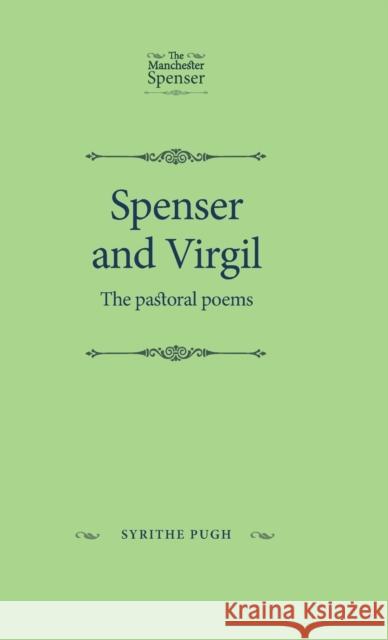Spenser and Virgil: The pastoral poems » książka
Spenser and Virgil: The pastoral poems
ISBN-13: 9781526101174 / Angielski / Twarda / 2016 / 352 str.
Spenser and Virgil: The pastoral poems
ISBN-13: 9781526101174 / Angielski / Twarda / 2016 / 352 str.
(netto: 414,80 VAT: 5%)
Najniższa cena z 30 dni: 432,86
ok. 30 dni roboczych.
Darmowa dostawa!
Dubbed 'the English Virgil' in his own lifetime, Spenser has been compared to the Augustan laureate ever since. He invited the comparison, expecting a readership intimately familiar with Virgil's works to notice and interpret his rich web of allusion and imitation, but also his significant departures and transformations. Careful attention to Spenser's complex engagement with Virgil can deepen our understanding of his poems and his conception of his role as poet.
This volume considers Spenser's pastoral poetry, the genre which announces the inception of a Virgilian career - anticipating ascent to epic - in The Shepheardes Calender, and to which he returns in Colin Clouts Come Home Againe, throwing the Virgilian career into reverse. Both publications conduct a sustained dialogue with Virgil's Eclogues, bewraying at once Spenser's profound debt to Virgil and his deep-seated unease with the values and priorities enshrined in his work. Not least among these is the place and value of pastoral itself. Virgil created a generic hierarchy subordinating pastoral, with its subject-matter of love and of song itself, to epic and affairs of state. Spenser draws on the political and intertextual dynamics of Virgil'sEclogues even as he challenges this hierarchy, finding in pastoral a space for prophetic authority independent of political power. Spenser was a sensitive reader of Virgil as well as a great poet. Drawing on classical and Renaissance commentaries, and engaging with current debate in both Spenser and Virgil scholarship, this study of his act of creative imitation reveals both poets in a new light.
Spenser and Virgil will appeal to students and academics in English Renaissance literature and to classicists interested in the reception of classical literature.











